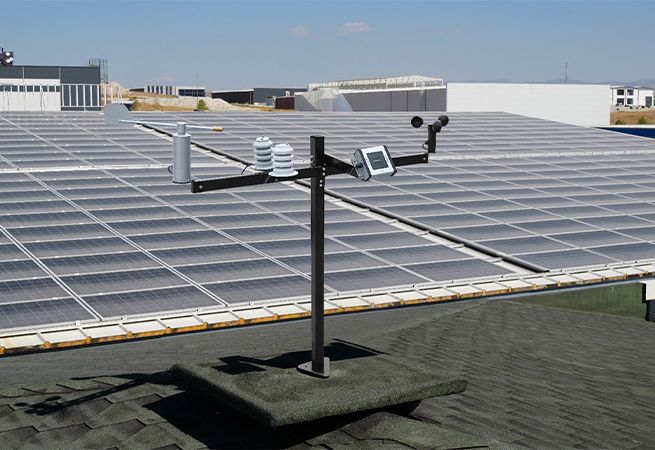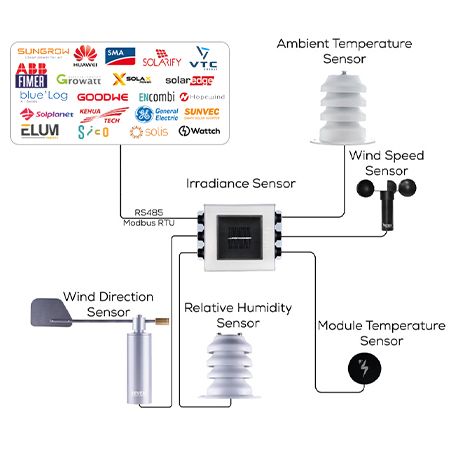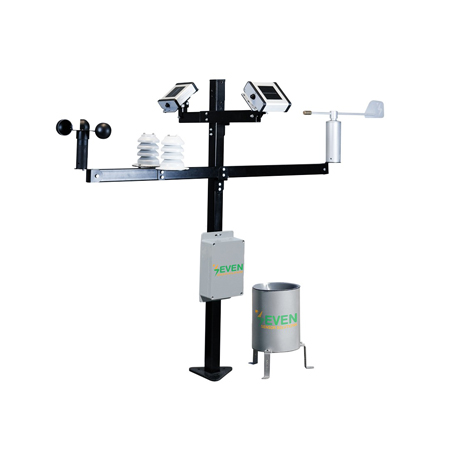Your cart is currently empty!
Choosing the Right Weather Monitoring Station in Malaysia

Mounting structure installed on a roof
Looking to get a weather station in Malaysia? Great choice! Whether you’re into farming, industry, personal use, or solar energy monitoring, having accurate weather data is super helpful. Let’s break down what you need to know to pick the perfect weather station.
Key Things to Look For
When you’re shopping for a weather station, keep these things in mind:
- Accuracy and Stability: Your station should give precise and consistent data.
- Easy Data Transmission: Make sure it collects and sends data without hassle.
- Durability: It should handle Malaysia’s weather and last a long time.
- Simple Installation: Choose one that’s easy to set up.
- Remote Monitoring: It’s great if you can check and control it remotely.
- Energy Efficient: Look for models that save energy.
- Secure and Eco-friendly: Your data should be safe, and the station should be good for the environment.
So, what is a weather station?
A weather station is a facility with instruments and equipment for measuring atmospheric conditions and providing relevant information for weather forecasts to study the weather and climate. The measured parameters include temperature, humidity, wind speed, wind direction, solar radiation, rainfall, and more. Data obtained from the monitoring can be used for agricultural weather monitoring systems, industrial weather solutions, personal weather stations, and solar monitoring systems.

Seven Sensor weather stations are compatible with many dataloggers
Understanding Malaysia’s Climate
Malaysia’s climate is characterized by consistent temperatures, high humidity, and frequent, heavy rainfall. The country enjoys plenty of sunshine, averaging about 6 hours a day, thanks to its equatorial location. Humidity levels range from 10% to 90%, and rainfall totals around 250 centimeters (98 inches) annually. The average temperature is 25.4°C.
What You Need in Malaysia
In Malaysia’s tropical climate, with its high humidity, frequent heavy rainfall, and intense sunlight, it’s essential to use sensors that can handle these conditions. Sensors that measure solar irradiance, rainfall, and humidity will provide critical insights into environmental conditions and help optimize performance. Additionally, monitoring temperature and atmospheric pressure will help manage equipment effectively in this consistently warm and moist climate. This comprehensive data is crucial for addressing the unique challenges posed by Malaysia’s weather and ensuring reliable operation.
Our Sensor Options
We are a reliable and accurate weather station manufacturer with a wide range of high-quality sensor and connectivity options. Our stations are compatible with most major data loggers.
- Class A, B, and C Thermopile Sensors for Global Irradiance Measurement (GHI)
- Reference Cell Sensors for Plane-of-Array Irradiance Measurement (POA)
- Albedo (for bifacial PV Panels plants)
- Ambient Air Temperature
- Module Temperature
- Wind Speed
- Wind Direction
- Rain Gauge
- Relative Humidity
- Barometric Pressure
- Soiling Sensor
- Dual and Multi-Orientation Solutions

A mounting structure including many sensors
Check out our catalog and YouTube page for more details
Got questions or inquiries? Just let us know. We’re here for you!